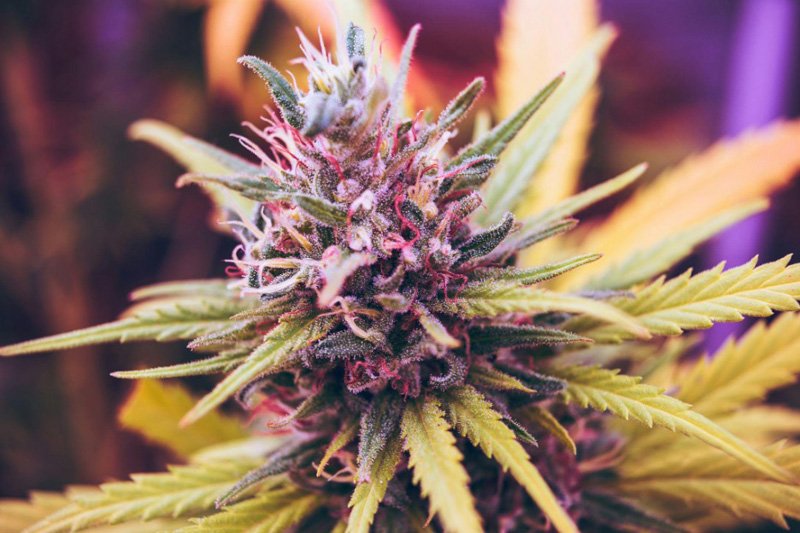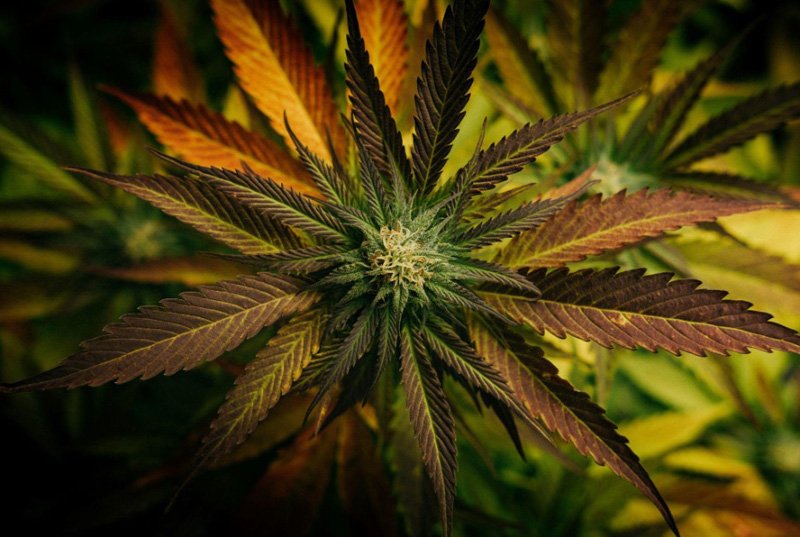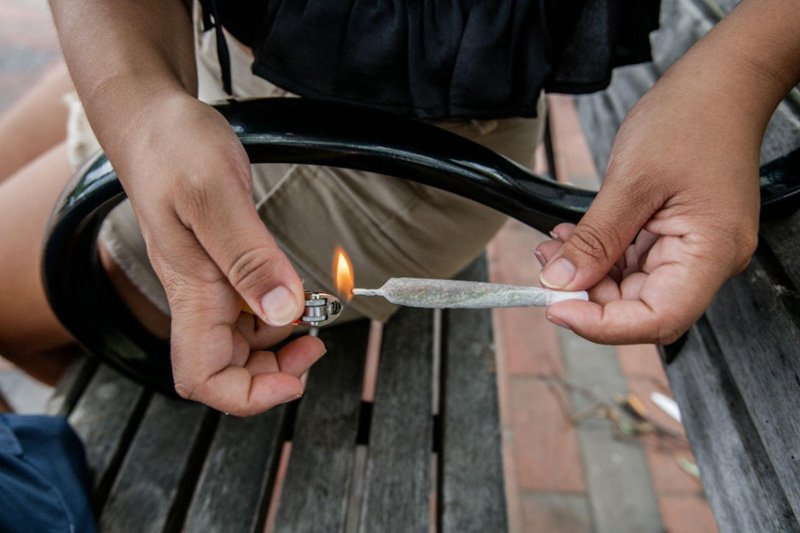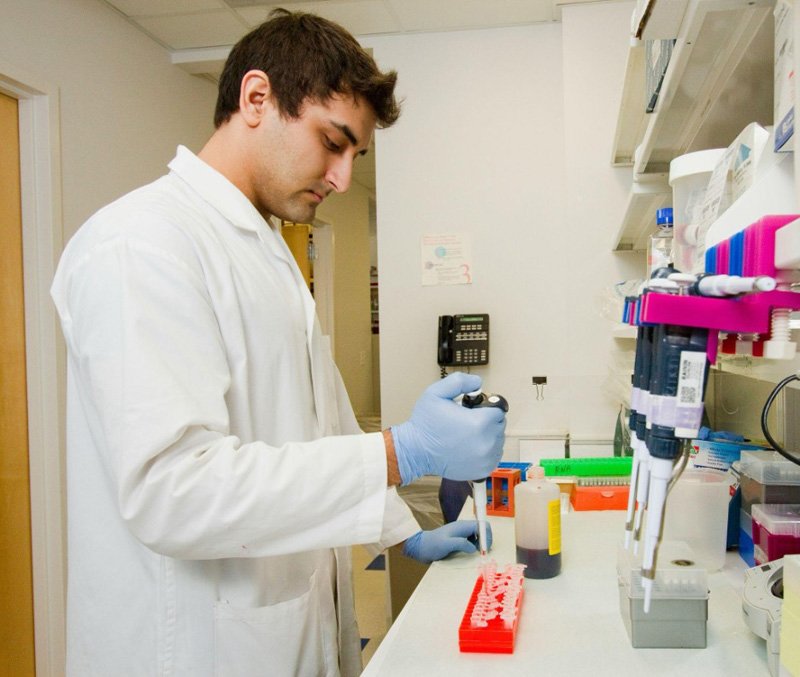Table of Contents [show]
THCA and THC: Understanding Their Potent Differences: Most people are at least somewhat familiar with CBD and THC, two of cannabis’s most notable substances. However, the hemp plant offers compounds far beyond these two, such as cannabinoids like THCA, that could impact your life positively in ways you may have never thought of.
THCA is a non-psychoactive substance that plays a crucial role in getting users buzzed. But how is it possible that a non-psychoactive compound is responsible for cannabis’s ever-famous buzz?
Let’s dive into THC and THCA products, comparing the two compounds and breaking down their effects, benefits, and relationship.
What is THCA?
THCA, or tetrahydrocannabinolic acid, is a cannabinoid naturally found in its raw, non-active form in cannabis that has not been heated.
This compound is essentially THC in its acidic state, yet it lacks the psychoactive effects that THC is known for. The two share a similar chemical makeup but serve different roles.
Originating from CBGA, an acidic cannabinoid often known as the progenitor of cannabinoids and commonly referred to as the “mother cannabinoid,” THCA forms as the cannabis plant grows.
Because THCA is an acid, it contains an additional carboxyl group in its molecular structure, preventing the compound from attaching to the brain’s receptors, thereby not triggering the high THC is famous for.
While direct consumption of raw THCA will not induce psychoactive effects, it can still enhance your cannabis experience through a range of health benefits, but that’s not why THCA has become so popular.
Significantly, the primary and most notable function of THCA is its transformation into THC when exposed to heat, making it a pivotal element in the process of activating cannabis’s psychoactive properties. Thus, while THCA itself doesn’t cause a high, it is instrumental in producing THC, cannabis’s key psychoactive ingredient.
 THCA and THC: Understanding Their Potent Differences
THCA and THC: Understanding Their Potent Differences
Understanding the transition of THCA to THC is key, particularly when heat is applied—a chemical reaction known as decarboxylation, where THCA loses its additional carboxyl group.
This is a pivotal step in transforming the non-psychoactive THCA into psychoactive THC, thereby activating marijuana’s effects. In essence, whenever you spark up a blunt or hit a vape, you’re exerting heat on your cannabis, forcing decarboxylation and releasing THC from the existing THCA.
So, now that we’ve established that THC is just THCA post-decarboxylation, let’s compare THCA to all the types of THC, or tetrahydrocannabinol.
Delta 9 vs. THCA
Delta 9 and THCA may be two chemically different compounds, but they’re much more related than people think. As previously mentioned, Delta 9, also known as just THC, originates from THCA.
After decarboxylation, THCA simply loses its additional carboxyl group and becomes Delta 9 THC. Therefore, using THCA products that require decarboxylation, such as vapes or flower, will result in the effects associated with THC.
Delta 8 vs. THCA
Delta 8, a form of tetrahydrocannabinol, is much milder than its older sibling, delta 9.
Found in minimal quantities naturally in the hemp plant, delta 8 THC is primarily produced through a laboratory process called isomerization from hemp-derived CBD. This involves reconfiguring the molecule’s structure due to the identical molecular framework all cannabinoids share.
Delta 8 is for those who want a milder experience, about half as strong as regular THC’s, whereas THCA products involving decarboxylation are better suited for people looking to experience the full extent of THC.
Delta 10 vs. THCA
Like Delta 8, Delta 10 is also achieved through isomerization. Its psychoactive effects are even more understated than Delta 8’s, and its other benefits are more energizing, focusing, and creative than any of our other compounds.
While less potent than both, Delta 8 and Delta 9, Delta 10 is perfect for people looking for uplifting effects.
 Will THCA Make You High?
Will THCA Make You High?
Yes and no.
Ingesting raw THCA won’t produce any psychoactive effects because its additional carboxyl group doesn’t allow it to attach to CB1 receptors– or any other significant cannabinoid receptors in the body, for that matter.
Once you heat that baby up, however, you’re all set for a good high.
The good thing about THCA is that you can choose how to enjoy it. You can opt to keep it raw and explore its wellness benefits or you can light it up and get crazy!
The Benefits & Advantages of THCA
While it’s clear that raw THCA doesn’t interact with the body’s cannabinoid receptors in a way that leads to psychoactive effects, its role in the realm of cannabinoids is far from insignificant.
THCA has been the subject of research for its potential therapeutic benefits, unveiling a spectrum of positive impacts.
A notable study in the British Journal of Pharmacology in 2013 highlighted THCA’s potential in alleviating nausea and vomiting, suggesting it could be a stronger candidate than THC for treating these symptoms.
Further investigations have positioned THCA as a promising neuroprotectant, potentially safeguarding against neurodegenerative diseases thanks to its interaction with the PPARγ receptor.
This interaction may also play a role in reducing inflammation and pain, as THCA has been observed to modulate inflammatory pathways and decrease the production of inflammatory markers.
In a study conducted in 2020 and published in the National Library of Medicine, THCA demonstrated the potential to mitigate obesity and its related conditions, such as diabetes and fatty liver disease, in mice with diet-induced obesity.
Despite the growing body of evidence supporting THCA’s benefits, there’s still much to learn about this cannabinoid’s full capabilities. Present findings, however, suggest THCA may offer:
- Anti-proliferative effects, aiding in cancer prevention
- Antiemetic and anti-nausea benefits
- Neuroprotective properties
- Anti-inflammatory effects
- Anti-obesity impacts
This makes THCA an intriguing subject for further scientific exploration, with the potential for numerous health-related applications.
The Benefits of Activated THCA
Once decarboxylated, THCA exhibits the same effects and benefits commonly associated with THC, because that’s exactly what it becomes!
Apart from those smooth psychoactive effects, these benefits include:
- Stress relief
- Relaxation
- Appetite stimulation
- Slight sedative effects
 How Long Does THCA Stay in Your System?
How Long Does THCA Stay in Your System?
Assessing the duration THCA remains in the system presents challenges. Typically, THCA is converted to THC through decarboxylation before ingestion, meaning it’s THC that enters the body.
Once transformed, THC can be detected for extended periods: up to 90 days in hair follicles, from a day to over a month in urine, around 24 hours in saliva, and up to 12 hours in the bloodstream.
The exact time frame for raw THCA’s presence in the body is less clear. However, there’s evidence suggesting that even without converting to THC, THCA might influence drug test outcomes due to the body’s cannabinoid metabolism processes.
Can THCA be Detected via Drug Tests?
Despite its non-psychoactive nature, THCA could potentially lead to a positive drug test.
Drug testing for cannabis typically relies on urine screens, employing either Immunoassay (IA) tests for quick results, which may lack accuracy, or more precise Gas Chromatography-Mass Spectrometry, which analyzes the sample’s components after vaporization.
Current testing methods do not distinguish between cannabinoids, ultimately identifying THC-COOH, a THC metabolite.
Ronald Flegel of the Substance Abuse and Mental Health Services Administration notes that drug tests screen for tetrahydrocannabinol-carboxylic acid (THCA), the non-active form of THC. Consequently, consuming THCA or raw cannabis might result in a positive drug test.
Thus, while THCA does not induce psychoactive effects and remains federally unregulated, its consumption could still trigger a drug test positive. If anticipating a drug screening, avoiding cannabis products in advance is advisable. While explaining THCA’s properties might provide context, erring on the side of caution is generally wise.
 Is It Possible to Develop a Tolerance to THCA?
Is It Possible to Develop a Tolerance to THCA?
To date, scientific studies have not indicated that individuals can develop a tolerance to THCA in terms of its health-related benefits such as anti-inflammatory, anti-nausea, or neuroprotective effects.
However, the scenario is different with THC, the psychoactive compound produced when THCA undergoes decarboxylation.
Many individuals who frequently use cannabis may find themselves developing a tolerance to THC, meaning they require larger amounts to achieve the same psychoactive effects previously experienced with smaller quantities. This growing tolerance can diminish the enjoyment and effectiveness of THC-containing products.
In such cases, taking a tolerance break, or “T break,” can help. Reducing cannabis consumption or stopping altogether for a period allows the body to reset its THC tolerance, making the effects more pronounced when consumption resumes.
Since THCA itself does not produce psychoactive effects, the concept of building a tolerance in the traditional sense—where effects diminish over time with consistent use—doesn’t apply in the same way.
Nonetheless, the absence of evidence is not evidence of absence; just because research hasn’t yet confirmed the possibility of developing a tolerance to THCA’s benefits doesn’t mean it’s impossible.
If you’re using THCA and notice a change in its efficacy, consider pausing its use for a short time to evaluate any differences in how you feel upon reintroducing it.
The legal landscape surrounding THCA and THC is intricate and varies widely depending on several factors. At the federal level, THCA itself is not classified as a controlled substance.
The 2018 Farm Bill, formally known as the Agriculture Improvement Act, plays a crucial role in distinguishing legal hemp from illegal marijuana based on delta 9 THC content.
Hemp is defined as cannabis with 0.3% delta 9 THC or less and is federally legal, while marijuana exceeds this THC threshold and remains illegal under federal law. Therefore, cannabis with a high THCA content but delta 9 THC levels at or below 0.3% is considered hemp and is legally permissible at the federal level.
State laws, however, introduce another layer of complexity. Some states, like North Carolina, do not enforce a “total THC” standard, making THCA products more freely available.
Conversely, states like Oregon apply a “total THC” standard that encompasses THCA and THC, restricting its legality. In Pennsylvania, the legal status of THCA may hinge on whether the cannabis material passes a total THC test, which is not always required for retailers of finished hemp products.
While federally, THCA derived from hemp with less than 0.3% delta 9 THC may be deemed legal, the interpretation can vary significantly at the state level.
Some states have enacted their own regulations concerning hemp-derived cannabinoids, independent of federal guidelines. This discrepancy between state and federal laws can create a complex and often confusing legal environment for THCA.
Given these intricacies, individuals interested in THCA should conduct thorough research to understand the specific regulations in their state. The legal landscape for cannabinoids is evolving, and staying informed is crucial for navigating the legality of THCA and related products.
 THCA vs. THC In Summary
THCA vs. THC In Summary
THCA stands out primarily as THC’s non-active precursor, yet it encompasses far more than just its potential for psychoactivity. Research has highlighted THCA and THC and their efficacy in several health-focused fields, including its anti-inflammatory, neuroprotective, and anti-obesity properties, to name a few.
It’s essential to recognize that THCA transforms into THC upon heating, leading to powerful psychoactive effects. This distinction is crucial for those seeking to harness THCA’s benefits without experiencing a high. Thus, avoiding any heating process is key to preserving THCA’s non-psychoactive properties.
In the end, raw THCA does not produce psychoactive effects, but once decarboxylated through heat exposure, it becomes THC, and thus offers the psychoactive effects associated with cannabis.
More on Delta and THCA in Spinfuel
Navigating the Health Aspects of Delta-8 THC: What You Need to Know
Exploring Delta 10: Understanding the Risks and Potential of This New Cannabis Compound
The Delta-8 Flower Wholesale Buyer’s Guide You Should Know
When Light’s Out Means Light’s Out – An Authentic 2022 Delta THCjd Line




